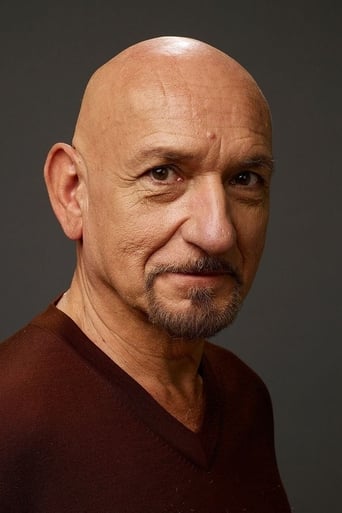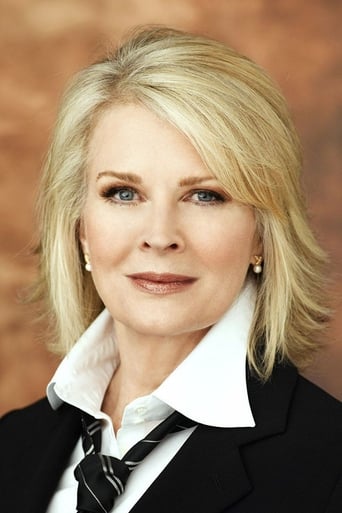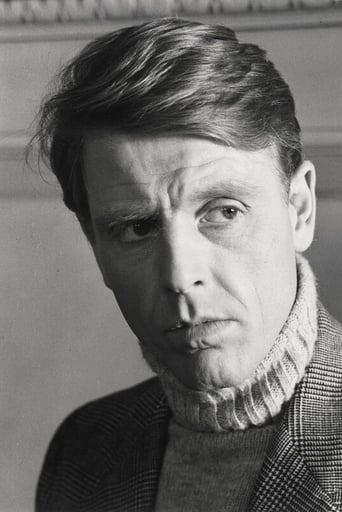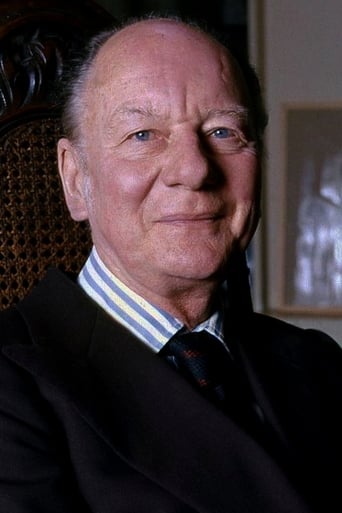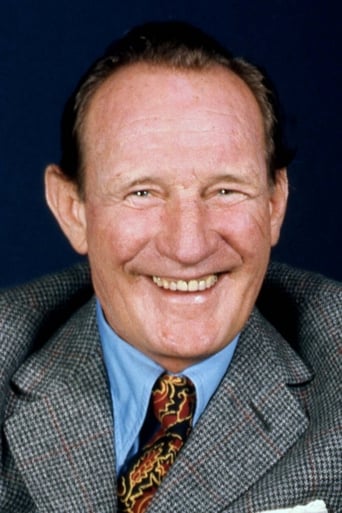Solemplex
To me, this movie is perfection.
Actuakers
One of my all time favorites.
Pluskylang
Great Film overall
Bob
This is one of the best movies I’ve seen in a very long time. You have to go and see this on the big screen.
michaelscheer-66014
Do you believe in heroes? Heroes to look up to? Because I recently watched a movie which is about a real life hero. The movie is called ''Gandhi''. It was released in 1982 by Richard Attenborough. The movie is about the life of the famous Indian independence fighter Mohandas Karamchand Gandhi or as you may know him ''Mahatma Gandhi''. The movie got nominated for 11 Academy Awards in 1983 and won 8 of them. One of them was won in the category of ''Best Movie''. The movie is a historical drama. The movie starts with the assassination of Gandhi in 1948. It then flashbacks onto his life and the effects he achieved. Gandhi is one of India's most famous persons ever to be alive. He fought, in a peaceful way, for India's Independence. Gandhi's way of living and dealing with problems was unique. He left his mark on people like Martin Luther King or Nelson Mandela. Although the movie is about three hours long, it is full of scenes which catch the viewers' emotions by surprise. Overall this is a great movie because it describes the life of Gandhi pretty well for three hours. The movie keeps the viewers' attention at all times. I would give it a rating of 10/10.
kromerlaura
The 1982 film "Gandhi", written by John Briley and produced by Richard Attenborough, tells the story of Mahatma Gandhi's life.At the beginning of the film we witness Gandhi's assassination from the perspective of the assassinator. I really liked that scene because the viewers get to see the assassination through his eyes, including Gandhi being shot. However, the scene wasn't fully shot from the assassinator's perspective. The viewers also get to see his face in a close up and someone who appears to be his accomplice. To me this scene has some kind of deeper meaning, especially when taking into consideration how the movie ends but I will get to that later on. Another thing I like about this opening scene is that the assassinator and his accomplice appear a few times throughout the movie. I think that's a nice detail and to me it seems like a metaphor, showing both, Gandhi's followers and opponents in the same scene without them actively having a conflict.The movie then goes back to 1839 when Gandhi, being a middle aged father and lawyer, gets confronted with the unfairness of society in South Africa. He is thrown off of a train because he sits in a train compartment which he isn't allowed to sit in. I liked that scene because it gives the viewers a first impression on Gandhi's personality in comparison to the construct of society at that time.After that the movie is filled with many powerful scenes showing the peaceful protest against the violence of the British police, as well as the violent conflicts between Hindus and Muslims. Another thing that I liked about the movie is the development of Gandhi and his growing audience. While at the beginning of the film we see Gandhi in a suit talking to a handful of people, at the end we see him in his simple white clothes followed by an uncountable amount of people. In addition to that, I think the scenes of his fasts and his time in prison are really impressive, not only because of the way Gandhi handled the situation but also the people around were really emotional. There's one part of the movie which I think is really precious and adds some nice details to it. By that I mean Gandhi's relationship to his wife. I absolutely adore the way the movie shows that Gandhi is still just human like everybody else, even though he did such impressive things. It is shown that he cares for his wife and stays by her side all the time, though he had some inner conflicts about that at the beginning of the movie. Their love seems so pure and honest which to me is a balance to the way Gandhi is presented throughout the rest of the film. Especially when she dies the movie seems to only focus on that for a few minutes. This is also the only scene when Gandhi cries. He smiles a lot throughout the movie even in the most difficult situations but in that scene he is shown as a man losing his wife and nothing more than just that. This is why this is one of my favourite scenes in the film. However, there are some scenes in the movie that bother me. One thing I didn't like about the movie is that there are some scenes where the characters would just a have talk for a while which made me lose interest in the movie a few times because the characters seemed to repeat themselves a lot instead of having short, impressive scenes which the viewers actually keep in mind. Another thing I don't particularly like is that sometimes the movie seems to show Gandhi as some kind of god. It is in fact true that many people saw him as a hero but sometimes it was simply too much of praise because it wasn't necessary for the viewers to see that over and over again.At the end of the movie we get to see the assassination scene again but this time from the perspective of Gandhi. Like I said before I think that scene is really impressive especially when comparing the beginning and the ending of the film. It is basically the same scene but we get to look through Gandhi's eyes. It is slightly different to the first scene because we get so see the last steps Gandhi takes as well as the last thing he sees and his last words, when at the beginning of the movie we see the way the assassinator takes and his perspective on it which is why at the end, instead of showing Gandhi's death again, the screen turns black and we hear his last words. I really like how the movie presents those two perspectives because it shows both, the part that loved Gandhi and the part that wanted to see him dead. All in all, I can say that I enjoyed the movie not just because of the story showing Gandhi's life but especially because of the little details which really turned the movie into this impressive piece of art. I would absolutely recommend that movie to anybody who wants to see the historical facts about Gandhi within a biographical drama movie.
julekortemeier
''There may be tyrants and murderers, and for a time, they may seem invincible, but in the end, they always fail.'' - Mohandas Gandhi This quote from the movie 'Gandhi', which was published in 1982, and produced and directed by Richard Attenborough, who also worked on various different movie genres and didn't only concentrate on historical movies or biographies, shows Gandhis' view of riots and violence in India. The film tells the story of Mohandas Gandhi, an Indian citizen fighting for equality and independence. Many people showed great interest in his life, which led to 8 Oscar-Acadamy-Awards and great success. The movie starts with a scene, in which Gandhi is assassinated and continues with his funeral in 1948. Then, there is a time leap to 1893, where Gandhi gets thrown off of a train in South Africa, because he isn't white. Because of that and other aspects of discrimination, he starts his first protest, in which he already follows his concept of satyagraha, a peaceful way of protest. The movie goes on and more and more people follow him and participate in his protests, making them more powerful. After a while, almost every Indian knows, who Mohandas Gandhi is, making his hunger fast a powerful weapon against war and riots. The film shows his influence on the people and on India generally and how he affected India's history and possibly prevented the death of many people. The actor, which plays Gandhi, Ben Kingsley, is very convincing. He transfers Gandhi's calmness and wiseness, but also his word power and influence on other Indians. It is shown that Gandhi would have willingly died at a protest or at a hunger strike, if it had helped to create peace in India. He thought of India as a union between Muslims, Hindus and all other religious groups, which was also why he was against partitioning India. His view on the problem seemed to be the right view, as mass violence and riots were only a few effects of Partition. The movie, which was filmed in India, preserves a great insight into the true life of an Indian at that time. It shows the discrimination, starting in the second scene, in which Gandhi is thrown off of the train, because he refused to leave the first class, which was only for white people. In another scene it is shown that Indians weren't allowed to walk on the side walk, since again, only white people were allowed to walk on there. In almost every scene it gets clear that the British were clearly privileged and the Indians were less worth as much than the British. Altogether, I would recommend watching the movie, since it isn't only historically informative but also allows an inside look into the life of Indians at the time of Partition. It shows that almost every Indian was invested into the war and the riots and that there was barely a way to avoid it. In my opinion, it also illustrates the big impact of Mohandas Gandhi and that the war wouldn't have passed as peaceful as it did with him.
hannahdeutermann
Gandhi. Was he really responsible for India's early independence or was he just a men like everyone else? Watching the movie "Gandhi", which was written by John Briley and produced and directed by Richard Attenborough in 1982, you will get a clear answer to this question. You will also get an inside view of Gandhi's whole life. His successes and his failures. You will see how he changed because of everything that happened to him, as well as India's and the world's reaction to him. This biographical drama won eight Academy Awards and was the most successful film in 1982, which was a big surprise as the film almost never got made. Attenborough tells Gandhi's story: The story of an Indian lawyer, who returned from South Africa to help his country gain its independence through successive acts of non-violent protest. This three-hour film probably tells one of the 20th century's most remarkable stories as Mahatma Gandhi created a new form of peaceful protests in India, which have been affecting history. The movie starts with Gandhi's assassination and then goes 30 years back in time to show his key moments in his struggle of creating a peaceful India. Gandhi, however, is the kind of man, who would do anything to achieve his goal, even if this means to go to prison a couple times or nearly starving to death. It took him 30 years to accomplish what he wanted and I think this shows that everyone is able to achieve his goal with a little patience even if it seems impossible. Even though the actor Ben Kingsley won the Academy Award of Best Actor for his stunning role, one of the eight Academy Awards this film won, there are really good performances from other actors as well like Candice Bergen, John Gielgud, Edward Fox and many more. Even if the film did not win the Academy Award for best original music score, for which this film was nominated, the music is still stunning and creates a different feeling for every situation. Attenborough, who really wanted to create this movie, created an awesome drama, which helps to understand Gandhi's point of view, even if it does not have a happy ending.







